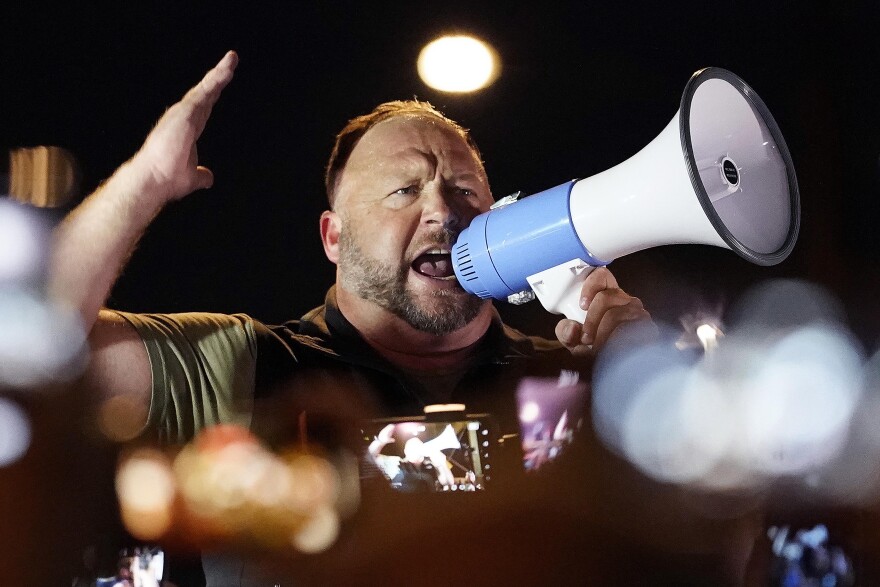A judge in a defamation case against Sandy Hook conspiracy theorist Alex Jones has formally reprimanded Jones' defense attorney.
Jones, the host of InfoWars, was sued by families of the victims of the 2012 school shooting more than three years ago for alleging that it had all been staged. On Friday, Superior Court Judge Barbara Bellis reprimanded attorney Jay Marshall Wolman, who she said “exceeded the bounds of acceptable behavior” by an attorney during a September deposition of a man who used to work for Jones.
“While there is room for persistent, competitive, and even aggressive lawyering in our courts, there is simply no room for conduct where witnesses are mistreated and which violate our professional rules of conduct,” Bellis said.
On Sept. 17, 2021, Wolman pushed witness Robert Jacobson to look through emails on his cellphone for references to Sandy Hook. During the deposition, Jacobson asked Wolman if he was “legally required” to produce the phone.
“You’re here and you’re subpoenaed here and you’ve brought your documents – your entire e-mail account to the deposition,” Wolman said.
Parts of the deposition were played during a December hearing on the matter.
At that hearing, Bellis and Brian Staines, chief disciplinary counsel for the state of Connecticut, said they thought Wolman crossed a line as he continued to ask Jacobson about his phone.
Attorney Wesley Horton spoke on behalf of Wolman at the December hearing. He said that Wolman wasn’t unethical in the deposition and that he was just trying to get the witness on the record.
“It wasn’t clear and convincing,” Horton told the court on Dec. 15.
In aJan. 24 court filing, Horton wrote that a belief that witnesses can be asked to search their phone is not “uncommon at the bar.” He then cited a document called “Leave 'Em at Home: Don’t Bring Anything to a Depo.” Horton did acknowledge that Wolman erred when he argued during the deposition with the plaintiff’s attorney about the line of questioning. He said that Wolman now resolves to have those kinds of conversations away from an unrepresented witness.
“He apologizes for any discomfort or pressure the witness may have felt,” Horton said on Jan. 24.
Bellis rejected those arguments.
And for Staines, the state’s chief disciplinary counsel, what he found “clear and convincing” was that Wolman’s conduct was intentional. He also says that Wolman told the witness he could call a lawyer for advice “but he had to do it now” and that Wolman knew Jacobson had no attorney and couldn’t afford one.
“Based on the repeated conduct of the respondent, the participation of the unrepresented deponent and the effect the conduct has on the judicial process a reprimand of the respondent is appropriate,” Staines wrote on Dec. 29.
Wolman wasn’t immediately available for comment on Saturday.
As for the case in Connecticut against Jones, it’s essentially been decided. In November, Bellis ruled that because of the way that Jones’ legal team handled the discovery process, it could no longer fight claims of defamation. Now it’s just a matter of the jury deciding whether Jones should pay damages.
Bellis also further clarified that the defense could argue only damages at trial. That trial is scheduled to begin in September.


